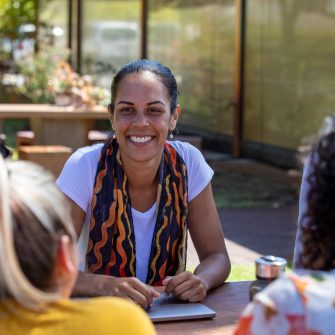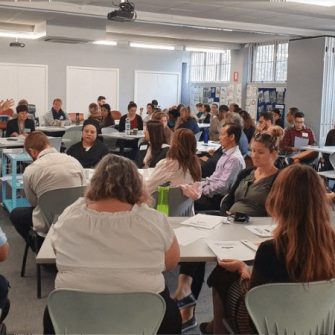Action for equity

Description and aims
Health equity is a matter of social justice. It is a central theme that cuts across everything we do at CPHCE. Achieving health equity requires addressing the causes of the unequal distribution of the social determinants of health. Our equity research aims to reduce both the gap and gradient of health inequities - unjust, unnecessary, and preventable differences in health status between social groups - as well as improving the overall health of populations experiencing inequities.
The Action for Equity Stream is focused on identifying and tackling the underlying causes of health inequities present within social structures, systems, and places. Our approach differs from concentrating on individual risk factors and behaviours. Instead, we emphasise the transformation of systems and structures that either perpetuate health inequities or support health equity. Equally important is understanding how people - particularly those who are marginalised - actively negotiate these systems and structures to mitigate stress or hazards. Together, we see this evidence forming the foundation for action and accountability.
Key current research areas
Our analysis centres on the dynamic interplay between individuals and their social environment. By understanding the pathways connecting material realities, life experiences, and socio-political forces, culture, and history shaping health and well-being for diverse populations, we identify opportunities that support people to live well. Our approach is action orientated, critically examining and explaining the origins of health inequities, and generating evidence and approaches to create transformative change and challenge injustice.
As conditions of adversity and precarity become more pervasive and affect people’s physical and mental health in different ways, exploring how people manage unequal power relations and access to resources to sustain health is a significant emerging theme.
Methodologically, we value participatory and collaborative approaches that recognise and address power and how it is distributed.
Areas we focus on
Understanding health inequity
- Understanding and explaining the causes of health inequities
- Identifying ways of transforming systems and structures to decrease health inequities.
Embedding equity
- Integrating equity principles and practices into systems and institutions.
- Developing and building capacity in decision support tools to support equity focused decision making and planning.
Power and agency
- Generating evidence for action and accountability
- Participation, exercising rights and supporting self-determination for better health.
- Investigating how strength-based approaches can support addressing and enhancing health equity.
People and Places
- Understanding and enhancing the role of placemaking and belonging in relation to health equity.
- Investigating health equity issues in social housing environments.
- Focusing on health equity challenges faced by marginalised populations including refugee and migrant populations.
- Addressing the drivers of health inequities in areas experiencing locational disadvantage.
Key partners
Our key partners include local communities, community advocates and organisers, health, local government, and other sectors.
Stream lead
Dr Esther Alloun, Karla Jaques and A/Professor Fiona Haigh lead this stream
Our research impact case studies
Contact Us
Centre for Primary Health Care and Equity
University of New South Wales Australia
Sydney NSW 2052
Phone: +61 (2) 8738 9310
Fax: +61 (2) 9602 8052
Email: cphce@unsw.edu.au
Stream Contact:
A/Prof Fiona Haigh
Email: f.haigh@unsw.edu.au


